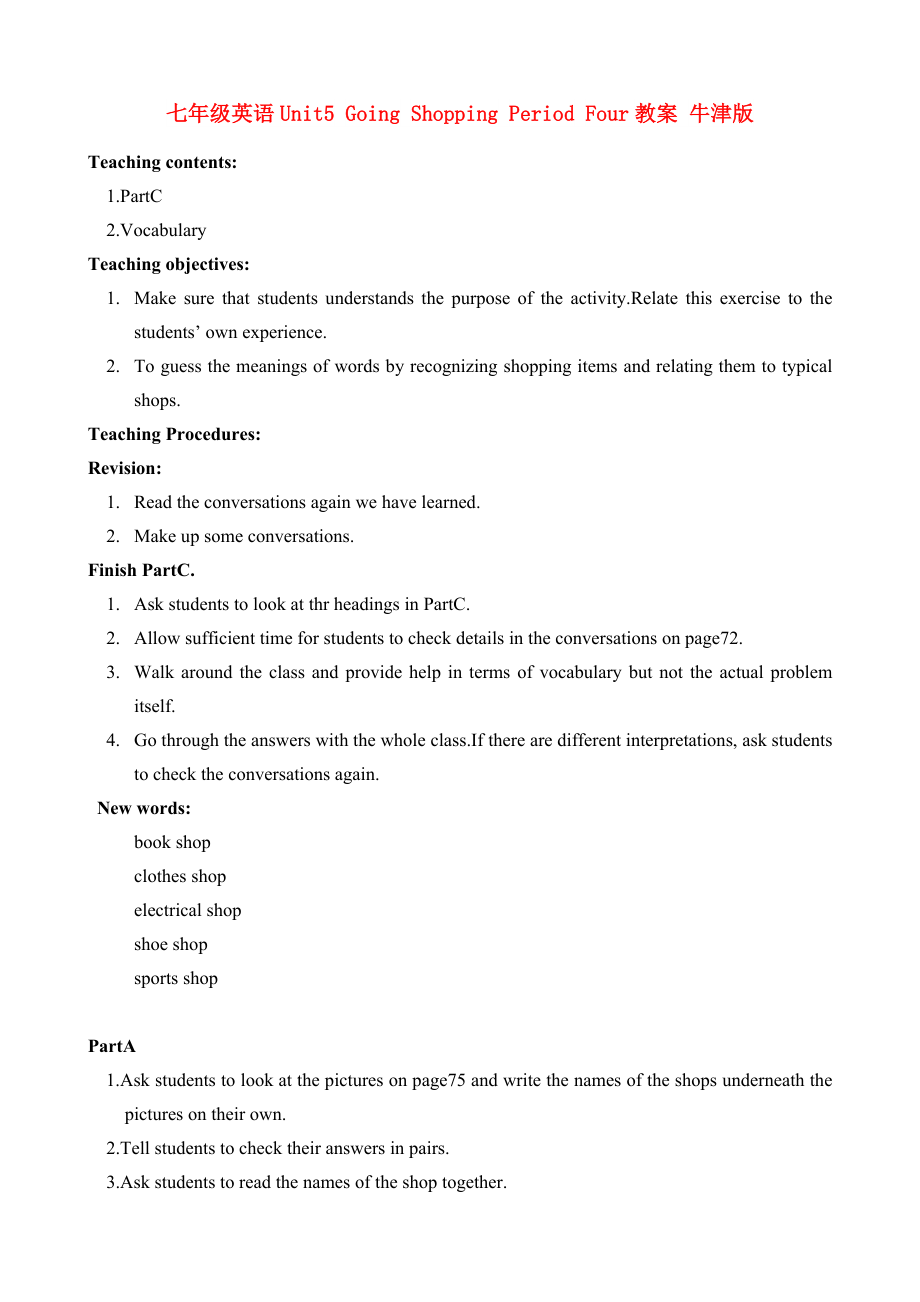《七年級(jí)英語Unit5 Going Shopping Period Four教案 牛津版》由會(huì)員分享���,可在線閱讀���,更多相關(guān)《七年級(jí)英語Unit5 Going Shopping Period Four教案 牛津版(2頁珍藏版)》請(qǐng)?jiān)谘b配圖網(wǎng)上搜索。
1�、七年級(jí)英語Unit5 Going Shopping Period Four教案 牛津版
Teaching contents:
1.PartC
2.Vocabulary
Teaching objectives:
1. Make sure that students understands the purpose of the activity.Relate this exercise to the students’ own experience.
2. To guess the meanings of words by recognizing shopping items a
2、nd relating them to typical shops.
Teaching Procedures:
Revision:
1. Read the conversations again we have learned.
2. Make up some conversations.
Finish PartC.
1. Ask students to look at thr headings in PartC.
2. Allow sufficient time for students to check details in the conversations on pag
3��、e72.
3. Walk around the class and provide help in terms of vocabulary but not the actual problem itself.
4. Go through the answers with the whole class.If there are different interpretations, ask students to check the conversations again.
New words:
book shop
clothes shop
electrical shop
sho
4�����、e shop
sports shop
PartA
1.Ask students to look at the pictures on page75 and write the names of the shops underneath the pictures on their own.
2.Tell students to check their answers in pairs.
3.Ask students to read the names of the shop together.
PartB
1. Ask students to look at the pict
5、ures and describe the objects.Tell them to write thr correct names under the pictures.
2. Then students match these items with the shops in PartA by writing the correct number in each of the boxes.
Exercises:
A. Change the following sentences.
1. We can buy books in a shop.
---->
2. The woman
6�����、buys a fancy T-shirt for her son.
---->
3. The meal costs us 150 yuan.
---->
4. They are looking for a house to live in.
---->
5. Tom goes to buy some vegetables by bike.
---->
B. Fill in the blanks.
1. There ________(be) a pair of shoes under the bed.
2. This coat _________(not match) your blue trouse.
3. _______they_________(dance)in the hall?No, they aren’t.
4. Helen spent 150 yuan ________(buy)the book.
5. He prefers ___________(do) his homework on Sundays.
 七年級(jí)英語Unit5 Going Shopping Period Four教案 牛津版
七年級(jí)英語Unit5 Going Shopping Period Four教案 牛津版

